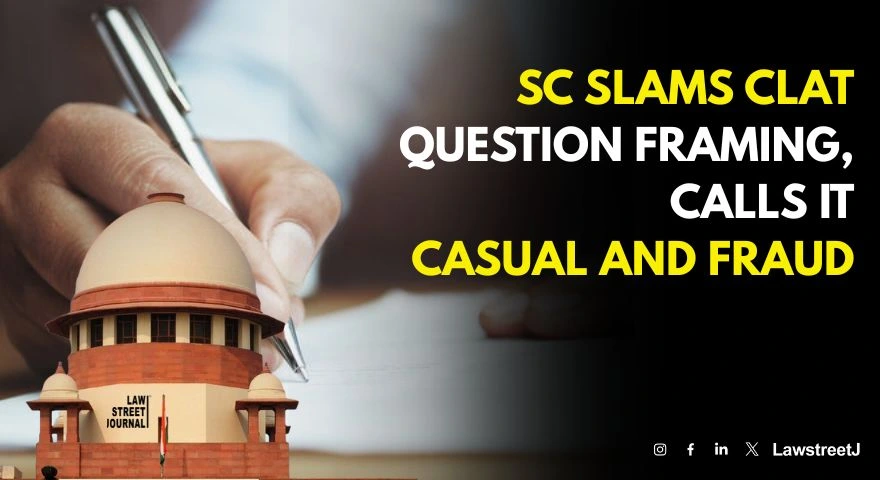NEW DELHI: The Supreme Court on Wednesday expressed anguish over the "casual manner" in which the Consortium of National Law Universities was framing questions for the Common Law Admission Test (CLAT).
A bench of Justices B R Gavai and Augustine George Masih, which pointed out mistakes related to some of the questions in the CLAT UG-2025, also questioned the Centre as to why a permanent mechanism for conducting CLAT did not exist, though directed in a 2018 judgment.
Hearing a plea filed by an aspirant challenging the Delhi High Court's April 23 verdict, the bench said, "At the outset, we must express our anguish at the casual manner in which the respondent number one (consortium) has been framing the questions for the CLAT examination which involves the career aspirations of lakhs of students in the country."
The HC had directed the consortium to revise the marksheets and republish the final list of selected candidates of CLAT UG-2025 within four weeks. The CLAT 2025 for admissions to five-year law (LLB) courses in national law universities was held on December 1, 2024 and the results were declared on December 7, 2024.
Examining the matter, the bench said, in matters of academia, court was always "very slow" in interfering as it did not possess the expertise in such issues.
"When academicians themselves err in such a manner which affects the careers of lakhs of students, the court is left with no other option," the bench observed.
The bench said it was clear from the high court's verdict that several questions were found not suitable and, therefore, the high court passed an order in relation to the several questions.
The apex court dealt with six questions in the matter.
On one of the questions over environmental issues, the bench referred to the answer key which said the fundamental duty to preserve and protect natural resources was only upon the state.
"It is totally wrong," the bench said, "time and again, the apex court has emphasised the duty of the state as well as the citizens to preserve and protect the natural resources".
It directed the consortium to give a positive marking to all such candidates who chose option C and D in the answer key. The bench said those who chose option A and B, would be marked negatively.
The apex court further set aside the high court's direction for deleting another question and ordered the consortium to give marks to those who chose option B in the answer key.
The bench was in agreement with the high court on another question and said C was the correct option.
On two more questions, the bench observed the consortium on its own deleted one of them.
The top court found "not much difference between the two" and ordered deletion of the other.
Two more questions--one entailing a detailed mathematical analysis--were ordered to be deleted.
During the hearing, the bench also referred to its June 2018 order in another case highlighting improper conduct of CLAT 2018.
In the judgement, the bench pointed out, the top court directed the Centre to appoint a committee to look into the issue and take remedial measures including penal action, if any, against the body entrusted with the task.
Although the judgement came in June 2018, yet the Centre took no steps, the bench said.
The bench then issued a notice to the Centre for its response and posted the matter on May 16.
On April 30, the apex court stayed the high court verdict directing the consortium to revise the marksheets and republish the final list of selected candidates of CLAT UG-2025 within four weeks.















